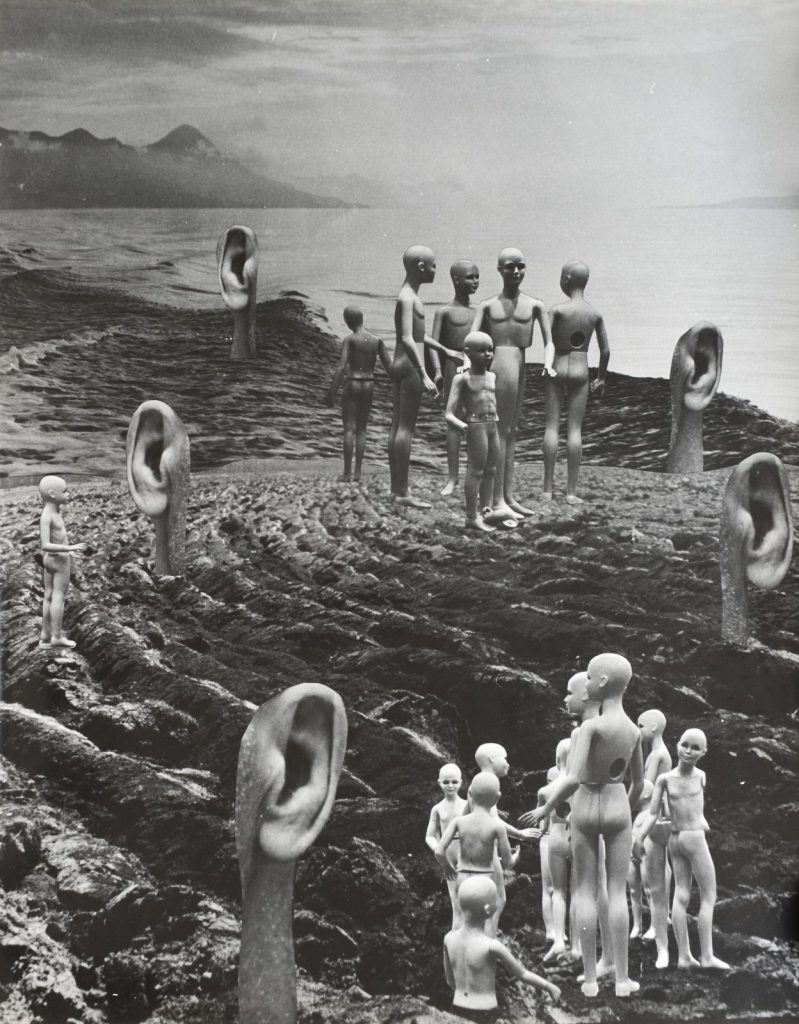
Zofia Rydet, Phantoms, from the World of Feelings and Imagination cycle, 1975–1979, gelatin silver hand print, courtesy of the Zofia Rydet Foundation and Raster Gallery, Warsaw Supported by the Adam Mickiewicz Institute
Zofia Rydet, Phantoms, from the World of Feelings and Imagination cycle, 1975–1979, gelatin silver hand print, courtesy of the Zofia Rydet Foundation and Raster Gallery, Warsaw Supported by the Adam Mickiewicz Institute

Born in 1911, the first decades of Zofia Rydet’s life were shaped by the omnipresent limitations imposed on women in war-torn twentieth-century East-Central Europe. Rydet put her artistic aspirations on hold to study at the Main Girls’ Economic School in Snopków, Poland, and later worked as a travel agent and manager of small stationary and toy businesses, only to return to her passion for photography at age forty. After joining the Gliwice Photographic Society, her practice evolved from an amateur fascination into a sincere, lifelong dedication. Central to her black-and-white series is an attentiveness to the human being. Rydet believed in the mnemonic ability of photography to preserve not only people’s existence but their values as well, specifically those people at the margins of society or deemed unrepresentative of the socialist way of life. Her unusual practice culminated in the Sociological Record (1978–97), an ambitious project to document each and every Polish household, and the resulting 16,000-negative inventory emphasizes women, mostly mothers living in the countryside, among other themes.
Select pieces from World of Feelings and Imagination (1975–79)—Rydet’s only non-documentary project—speak to the existential aspects of the conditio humana through photomontages that evoke Dada and Surrealist forms. The artist stitched together cut-out pieces from her own photographs to create mock-ups that she then photographed and enlarged as reproductions. The series comprises nearly one hundred images that evoke post-apocalyptic scenarios arranged according to fifteen themes, including “Mannequins,” “Phantoms”, and “Threat.” Recurring motifs are uniform mannequin figures, gloves rising from damp soil, parched tree branches scattered in abstract landscapes, and horizons shaped by female curves. The liberating process of collaging allowed Rydet to capture what she called the “feelings and desires, loneliness and fear to which love is the only remedy, and the tragedy of evanescence.” The series is an intimate confession filled with the anxieties of disappearance that linger within Rydet’s traumatic experiences of war, feminine existence, and the ever-present threat of cataclysm.
Zofia Rydet, Phantoms, from the World of Feelings and Imagination cycle, 1975–1979, gelatin silver hand print, courtesy of the Zofia Rydet Foundation and Raster Gallery, Warsaw Supported by the Adam Mickiewicz Institute